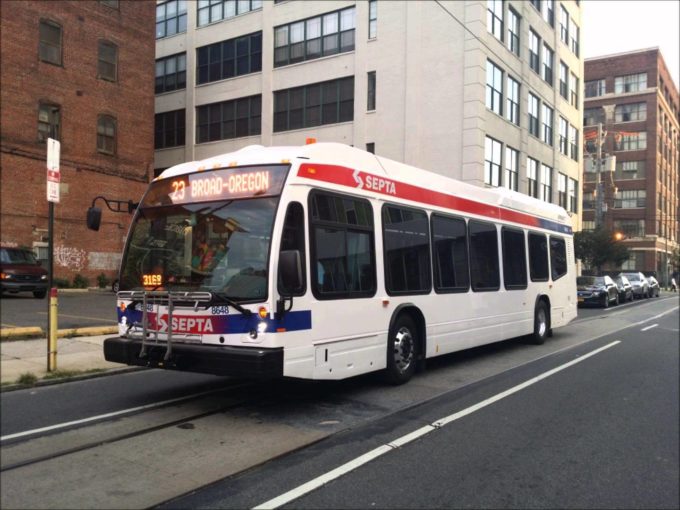
The Center for Investigative Reporting v. Southeastern Pennsylvania Transportation Authority (SEPTA): Free Speech Protections for Political Ads Upheld in 3rd Circuit Court
By Nicholas Anway -- Edited by Sarah Newbury
Ctr. for Investigative Reporting v. Se. Pa. Transp. Auth. (SEPTA), No. 19-1170 (3d Cir. Sept. 14, 2020), brief hosted by Reporters Committee for Freedom of the Press.
On September 14, 2020, the United States Court of Appeals for the Third Circuit ruled in favor of the Center for Investigative Reporting (“CIR”) in a case brought against Southeastern Pennsylvania Transportation Authority (“SEPTA”). The Court held that SEPTA’s irregular application of its political advertising policy violated CIR’s free speech protections under the First Amendment.
In the complaint, CIR alleged that SEPTA had violated its First Amendment rights by rejecting an advertisement it submitted for placement in busses and bus terminals in January of 2018. (CIR is a California-based, nonprofit, investigative news organization.)
The advertisement in question, entitled “A Stacked Deck,” summarized the findings of a 2018 report from CIR’s news site, Reveal. The report found that applicants of color were more likely to be denied conventional home purchase mortgages than white applicants in 61 metropolitan areas across the United States. In Philadelphia, the ad specified, black residents were 2.7 times more likely to be denied conventional mortgage loans than white residents.
SEPTA’s General Counsel, Gino Benedetti, stated that he rejected the ad because “[d]isparate lending is a matter of public debate and litigation.” SEPTA amended its advertising policy with the intent of banning political ads in 2015.
CIR’s complaint was initially unsuccessful. In a September 2018 ruling, the United States District Court for the Eastern District of Pennsylvania ordered SEPTA to revise certain problematic portions of their policy, but denied CIR’s motion for preliminary injunction.
On appeal, however, the Third Circuit reversed the lower court’s ruling, holding that SEPTA’s advertising standards constituted “impermissible subject matter restrictions on speech” under the First Amendment.
In the Court’s opinion, Judges Greenaway, Jr., Porter, and Greenberg enumerated two forms of content-based discrimination that the First Amendment prohibits: subject matter discrimination and viewpoint discrimination. The Court held that, while subject matter restrictions may be permissible in certain fora, SEPTA’s advertising standards were not permissible because they were incapable of a reasoned application. In contrast, the Court upheld its 2019 ruling in Northeastern Pennsylvania Freethought Society v. County of Lackawanna Transit System that viewpoint discrimination is prohibited in any forum.
The Court’s holding echoed a rule set forth in 2018 by the Supreme Court of the United States in Minnesota Voters Alliance v. Mansky.The Mansky rule asserts a “reasonable application” test, stating that a prohibition on speech in a nonpublic forum must “articulate some sensible basis for distinguishing what may come in from what must stay out” in order to be reasonably applied.
The Third Circuit held that SEPTA’s advertising standards did not pass the Mansky test based on inconsistencies in the advertisements that were accepted and denied, as described in their testimony to the lower court. For example, Benedetti was asked during oral argument whether SEPTA would allow two variants of a hypothetical ad depicting three girls of different races holding hands. When asked whether the first, which featured the phrase “this is how racism ends,” would be deemed political, SEPTA’s counsel responded “No, I don’t think so.” When asked the same question of the second variant, featuring the phrase “this is what America looks like,” he demurred, asking “Who’s putting the ad on?” The Court pointed to this and other inconsistencies as indicating a lack of “objective, workable standards,” amounting to a failure to meet Mansky’s reasonable application rule.
This wasn’t the first time that SEPTA’s advertising policy was overturned in court. In 2015, the Philadelphia Inquirer reported that the Transit Authority’s ban on political advertising was adopted after an anti-Muslim group, the American Freedom Defense Initiative (“AFDI”), purchased an ad featuring content that Benedetti deemed Islamophobic. A federal judge barred SEPTA from banning the advertisement, holding that the ban violated the AFDI’s First Amendment rights under precedent from an older Supreme Court ruling, Cornelius v. NAACP Legal Defense & Education Fund.
Transit advertisements also sparked controversy in New York City buses and subways in the same year. As reported by The New York Times, New York’s Metropolitan Transit Authority similarly changed its policy to disallow political advertising after being ordered by a federal judge to run controversial ads from the AFDI in both 2015 and 2012.
The First Amendment’s reach into transit advertising continued to play out in 2020. Last April, the Supreme Court denied a writ of certiorari for a case involving religious ads placed on buses in Washington, D.C., reaffirming in dictum that the First Amendment prohibits viewpoint discrimination in bus ads.
Nicholas Anway is a second year JD/MPP student at Harvard Law School and Harvard Kennedy School.